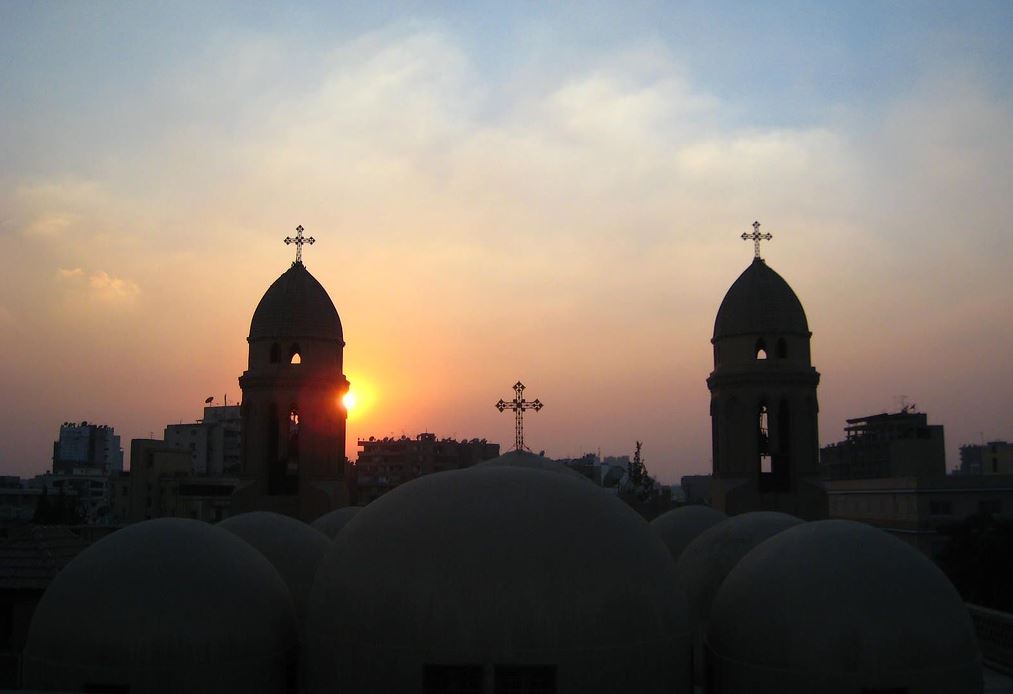“Be completely humble, gentle; be patient, bearing with one another in love,” reads Ephesians 4:2, a book in the Bible’s New Testament.
In the Christian faith, marriage is a sacrament in which God blesses, sanctifies, and completes the love between the man and woman. When their union is made eternal by the grace of the Holy Spirit in the marriage, their love is believed to help them transcend any limitations and obstacles imposed by the world.
And yet, the obstacles can prove to be many in the most populous country in the Middle East.
In 2021, Major General Khairat Barakat, head of the Central Agency for Public Mobilization and Statistics (CAPMAS), explained that Egypt recorded a case of divorce every two minutes and two marriages every minute.
Divorce cases in Egypt have also evidently increased by 14.7 percent, nearly reaching 245,777 in 2021 compared to 222,036 certificates in 2020.
For the Muslim community in Egypt, divorce is a simple process.
However, for Egypt’s Christians, who make up 1o to 15 percent of the country’s population, divorce is a hefty and complicated process that involves both the state and the church.
What does Christian scripture say?

In the Christian faith, it is believed that what God has put together, no man can tear asunder. In the Bible, Matthew 19:16 says that “so they are no longer two, but one flesh. Therefore what God has joined together, let no one separate.” It is also stated in Mark 10:9, “Therefore what God has joined together, let no one separate.”
The two verses essentially mean that when two people are united in a blessed marriage, nothing in this world can separate them.
Initially, the Coptic church followed the 1938 Regulation, which essentially permitted divorce under nine pretenses, including adultery, marital abandonment, imprisonment, and sexual aversion.
Although Christians who sought divorce had to wait a long time for it, they were ultimately granted their singlehood. The law also allowed remarriage without permission from the church.
It was under Pope Shenouda III, who became the Pope of Alexandria and Patriarch of the See of Saint Mark in 1971, that grounds for divorce became more constrained. In 2008, he restricted divorce to proven cases of adultery or change in religion only.
After Pope Shenouda’s passing in 2012, Egyptians began protesting and organizing demonstrations to demand the right to divorce. In 2012, a Coptic Christian activist group, Coptic 38, held a press conference at the Journalists’ Syndicate to call for the re-implementation of 1938 bylaws that permitted Coptic Christians to obtain a divorce under the nine conditions.
The issues on the ground
“In Christianity, marriage is the most secret covenant a husband and wife make with God,” argues Leena Maged*, a 22-year old graduate student at the American University in Cairo. “For this reason, I think divorce has no place in a covenant where you promise to put the other person first. Divorce is quitting, even though you vowed to keep going and loving no matter what.
Maged’s view is held by a large bulk in Egypt’s Christian society, but unlike Maged, many Coptic Christian women support the inclusion of divorce and the relaxation of laws in Christian marriages.
“Divorce should be normalized for Coptic Christians because it is natural for people to change and have the choice and freedom to decide whether this is the life they want to continue in or not,” Amany Ashraf*, a Coptic Christian woman tells Egyptian Streets.
Ashraf, currently going through a divorce herself, notes that she did not experience shame from society, but rather from people inside the church who she felt were against her.
“I wasn’t shamed socially, but the generations that preceded me might have experienced social shame. It was different inside the church, because many people inside the Coptic community are avid supporters of the Christian law that condemns divorce,” underscores Ashraf.
She explains that it is far better to raise a child in a home with one parent that loves them rather than in a household with two parents that can’t.
“If there is one thing I wish I could change about society is that it should stop integrating religion in everything. There are abusive and toxic families, and it is far more dangerous to stay in the same place that hurts you just because it is deemed wong in a society that strictly values religious laws,” Ashraf* notes.
Many women often resort to khula’ (compulsory divorce), which stipulates that the wife waives all of her financial rights, and the court must decide divorce by a non-appealable ruling.
“There are 1,200 cases of Coptic Christians converting to Islam in order to secure a divorce,” explained Peter Ramses El-Naggar, a law professor, in a 2012 interview with Ahram Online.
El-Naggar highlighted that a change of religion often occurs when a woman seeks khula’ or a man seeks divorce. Essentially, khula’ in Egypt is usually a last resort for women stuck in marriages where they cannot reach an agreement with their husbands on grounds of divorce.
Khula’ strips women of their financial rights, unlike divorce. A divorced woman, according to article 76 of Egypt’s Personal Status Law, shall receive 25 percent of her husband’s monthly income in alimony if they have no children. If they have one or more children, it rises to 40 percent, and if they have more than two, it is 50 percent.
The church’s restriction led several people to resign from the Orthodox Church. According to Egyptian law, when a citizen formally leaves a religious community and does not join another, Islamic Law is applied, which in this case means that the Copts in question can obtain a divorce and remarry – secularly.
The future of divorce for Egypt’s Christians
The arrival of Pope Tawadros II on the patriarchal throne in 2012, however, signaled a remarkable turning point: in 2016, a new list proposed new grounds permissible for divorce under the Coptic Church, including change in religion, debauchery, immigration (for five years), sickness, and atheism – reasons that were not considered grounds for divorce previously.
He was keen on adopting a ‘compassionate’ approach towards those seeking divorce and remarriage.
In several television interviews since 2016, he stressed that the Church would henceforth accept separation – for a period of five years for couples with children and three years without children – as a sufficient ground for divorce and that the church courts would consider granting a second marriage certificate to one or both parties divorced on those grounds.
Though the state has called on all churches of different denominations to agree on a common law regarding the personal statutes of Copts, they have been unable to reach an agreement.
The application of any less restrictive laws is still not imminent due to the widening differences present between the three denominations.
Hence, most Christian couples opt for physical separation that does not involve the church or the state, which strips them of the right to remarry. The question of whether this issue will be solved in Egypt remains unanswered for Egypt’s Christian community.
*Names have been changed for safety reasons.
Subscribe to the Egyptian Streets’ weekly newsletter! Catch up on the latest news, arts & culture headlines, exclusive features and more stories that matter, delivered straight to your inbox by clicking here.







Comments (0)